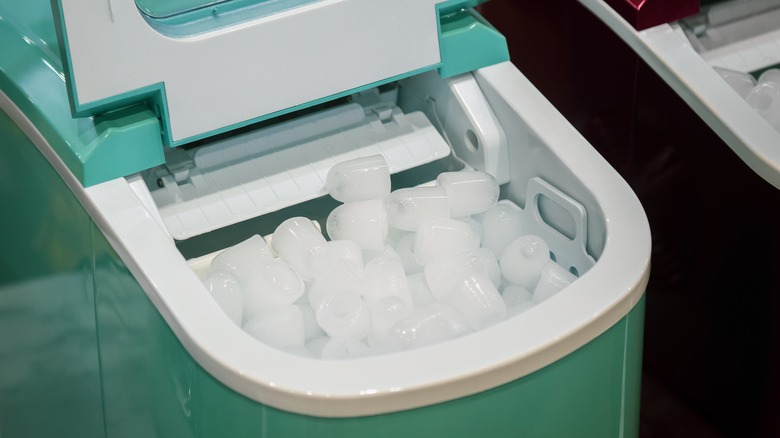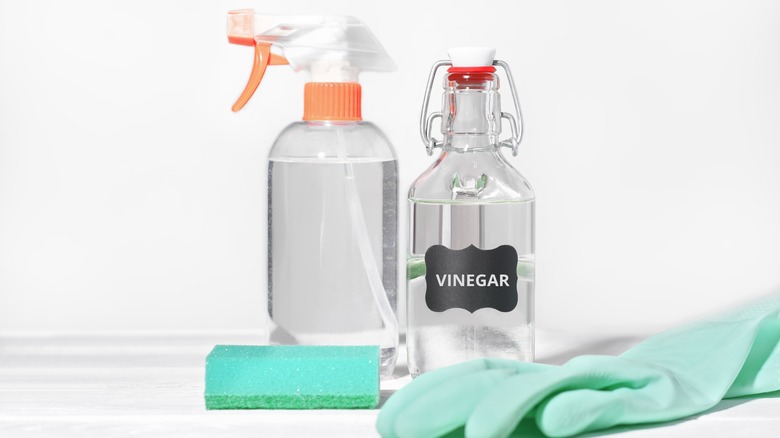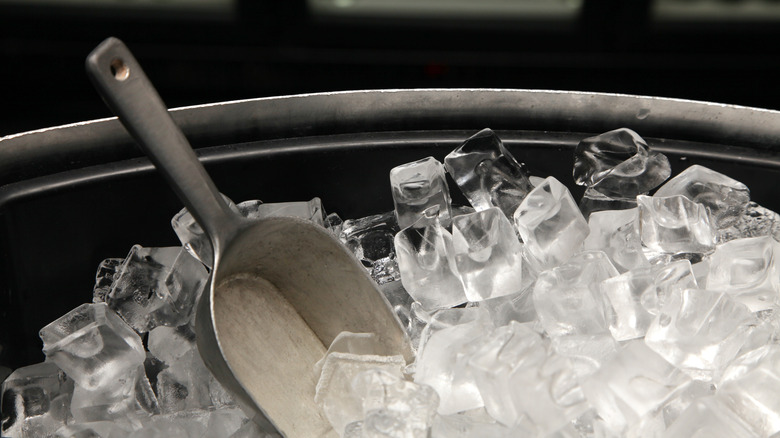Clean Your Countertop Ice Maker With A Budget-Friendly DIY Solution
A countertop ice maker is a helpful little appliance. It makes ice cube after ice cube with little intervention. You simply need to periodically refill it with water and close the lid. Though that sounds straightforward, ice makers are susceptible to multiple strains of bacteria. These strains are known to cause E. coli, salmonella, norovirus, and other potentially life-threatening illnesses. Luckily, you can clean your countertop ice maker with a budget-friendly DIY solution and you likely already have the supplies necessary — you just need some water, white vinegar, a spray bottle, and a cloth.
Combining warm water and vinegar creates a cleaning liquid that rivals any store-bought cleaner. Vinegar is such a powerhouse that while it kills bacteria in your ice maker, it will descale it, too. The acid kills microbes and breaks down mineral deposits common amongst anything that holds water. Routinely cleaning your ice maker with vinegar is the best way to maintain it.
Use vinegar and water to clean your countertop ice maker
Cleaning your ice maker requires very little. You can use mild detergent and water, but detergent may linger and impact the quality of your ice. Using vinegar instead is an easy and affordable way to clean and descale your ice maker. Mix equal parts warm water and vinegar to create a DIY cleaning solution. Then, set the solution to the side and unplug the ice maker.
Next, pull the drainage plug to empty any water, and remove the ice basket and any ice within it. Submerge the basket and scoop in a bowl of the vinegar solution for about twenty to thirty minutes. While that sits, pour more of the solution into a spray bottle and spray the mixture on the interior of the ice maker — alternatively, you could use a moistened sponge. Then, dry the interior with a soft cloth. After the ice maker has dried completely, put the basket back into it and fill the tank with water. Plug it back in and run a few ice cycles to ensure the vinegar's taste doesn't linger, and be sure to store any unused vinegar solution safely.
How often should you clean your ice maker?
Traditional ice makers need to be cleaned about twice a year, but you should clean and descale your countertop model more frequently. Bacteria can live on ice despite its freezing temperature. Salmonella, E.coli, and Norovirus are a few of the most common strains of bacteria found in ice makers. Some varieties, like legionella, have even resulted in death.
Microbes can be spread by you, your water, or nearby objects, and once it's in your ice maker, it will cycle multiple times. You can also transfer bacteria by grabbing ice with unwashed hands, so it's important to always use a scoop to avoid any potentially harmful contact. Bacteria is also found in contaminated water, therefore, filling the ice maker with purified or filtered water will help eliminate any risk of contamination. Keeping the appliance away from dust and debris will also protect it from any airborne bacteria or particles that may enter the tank.


